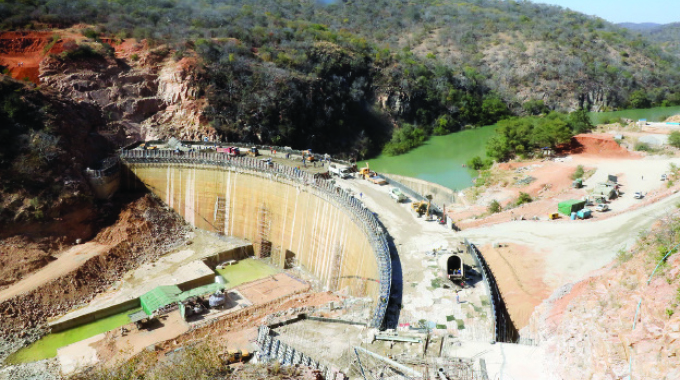Infrastructure projects to spur construction sector

Oliver Kazunga Senior Business Reporter
Zimbabwe’s construction industry is poised for further growth this year, spurred by new and ongoing multi-billion public infrastructure projects, the Construction Industry Federation of Zimbabwe (CIFOZ) has said.
As part of rebuilding the economy, the Government identified infrastructure as one of the key economic enablers and priority has been placed on infrastructural development including road rehabilitation, the construction of dams, and housing projects among others.
Infrastructure development also dovetails with the Second Republic’s vision of an upper middle-income economy by 2030, which is anchored on the National Development Strategy 1 (NDS 1). NDS 1, a five-year economic blueprint, was launched in 2021.
It runs up to 2025 and will be replaced by NDS 2, which would propel the country to a middle-income economy by 2030.
Coupled with the prevailing macro-economic stability, CIFOZ president Mr Martin Chingaira said the inclusion of local construction companies in the Government’s major infrastructure development programmes had improved the viability of local construction companies.
“The shift in Government’s policy to consider local contractors has resulted in the growth of the sector. For example, Harare-Beitbridge road has capacitated main contractors, sub-contractors and suppliers of building materials which has created jobs in the sector and across downstream industries,” said Mr Chingaira
Overall, government plans to spend $1,1 trillion on infrastructure development.
In the 2023 National Budget, Finance and Economic Development Minister Professor Mthuli Ncube said the Government would continue prioritising the upgrading and rehabilitation of the country’s road network.
The Government has also placed emphasis on completion of ongoing works on major roads and re-gravelling of feeder roads.
Private players in the construction industry are this year expected to participate in the $70,5 billion Emergency Road Rehabilitation Programme. The Government is also financing the construction of dams including Gwayi-Shangani in Matabeleland North province which is expected to be completed this year.
Once completed, the massive water body will propel sustainable economic growth and development through supporting projects such as irrigation in the Gwayi area, tourism and recreational facilities as well as supplying water to Bulawayo, which experiences perennial water woes.
Through the Zimbabwe National Human Settlement Policy, the Government is targeting to construct 450 000 new housing units by 2025, and private contractors are expected to tap into such a housing project.
Mr Chingaira said 2022 ended “on a good note for players” in the construction sector driven by the supportive and transformative policies the Government continues implementing. “The Government needs to continue supporting the built environment to ensure that the private sector is able to access affordable funding with Government guarantees as a prerequisite requirement.
“There is also a need to form a construction bank in order to get loans which are long-term and with concessionary interest rates,” he said.









Comments